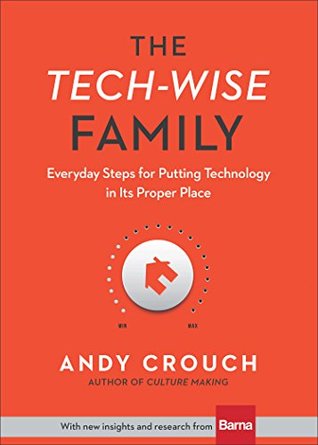More on this book
Community
Kindle Notes & Highlights
Technology is in its proper place when it helps us bond with the real people we have been given to love. It’s out of its proper place when we end up bonding with people at a distance, like celebrities, whom we will never meet.
Technology is in its proper place when it starts great conversations. It’s out of its proper place when it prevents us from talking with and listening to one another.
Technology is in its proper place when it helps us take care of the fragile bodies we inhabit. It’s out of its proper place when it promises to help us escape the limits ...
This highlight has been truncated due to consecutive passage length restrictions.
Technology is in its proper place when it helps us acquire skill and mastery of domains that are the glory of human culture (sports, music, the arts, cooking, writing, accounting; the list could go on and on). When we let technology replace the devel...
This highlight has been truncated due to consecutive passage length restrictions.
Technology is in its proper place when it helps us cultivate awe for the created world we are part of and responsible for stewarding (our family spent some joyful and awefilled hours when our children were in middle school watching the beautifully produced BBC series Planet Earth). It’s out of its proper place when ...
This highlight has been truncated due to consecutive passage length restrictions.
Technology is in its proper place only when we use it with ...
This highlight has been truncated due to consecutive passage length restrictions.
No matter what advertising says (even those beautiful, tear-jerking Apple ads), the very best of life has almost nothing to do with the devices we buy. It has a lot to do with the choices we make, choices that our devices often make more difficult.
Let him who cannot be alone beware of community. . . . Let him who is not in community beware of being alone”—Dietrich Bonhoeffer.)
The most powerful choices we will make in our lives are not about specific decisions but about patterns of life: the nudges and disciplines that will shape all our other choices.
The first and deepest is to choose character—to make the mission of our family, for children and adults alike, the cultivation of wisdom and courage.
The second is to shape space—to make choices about the place where we live that put the development of character and creativity at the heart of our home.
And the third is to structure time—to build rhythms into our lives, on a daily, weekly, and annual basis, that make it possible for us to get to know one another, God, and our world in deeper and deeper ways.
We are designed for a rhythm of work and rest. So one hour a day, one day a week, and one week a year, we turn off our devices and worship, feast, play, and rest together.
Family is about the forming of persons. Being a person is a gift, like life itself—we are born as human beings made in the image of God. But while in one sense a person is simply what we are as human beings, we are also able to become—to grow in capacities that are only potentially present within us at first.
Family helps form us into persons who have acquired wisdom and courage.
Knowledge, these days, is very easy to come by—almost too easy, given the flood of search results for almost any word or phrase you can imagine. But you can’t search for wisdom—at least, not online.
the way of wisdom has been clear: stay committed, stay faithful, stay hopeful.
And the church is, and can be, family for everyone in a way that biological families cannot. No matter whether your parents are still living—or whether they were ever loving—no matter whether you have a spouse or children or siblings or cousins, you have a family in the church.
But technology is only very good if it can help us become the persons we were meant to be. Let’s honestly compare ourselves, and the society we currently inhabit, with previous generations who did not benefit from modern technology’s easy everywhere. Without a doubt, compared to human beings just one century ago, we are more globally connected, better informed about many aspects of the world, in certain respects more productive, and—thanks to GPS and Google Maps—certainly less lost. But are we more patient, kind, forgiving, fearless, committed, creative than they were? And if we are, how much
...more
Here is the heart of the paradox: Technology is a brilliant, praiseworthy expression of human creativity and cultivation of the world. But it is at best neutral in actually forming human beings who can create and cultivate as we were meant to.
Technology is good at serving human beings. It even—as in medical or communication technology—saves human lives. It does almost nothing to actually form human beings in the things that make them worth serving and saving.
We will have to teach our children, from early on, that we are not here as parents to make their lives easier but to make them better.


